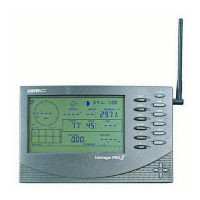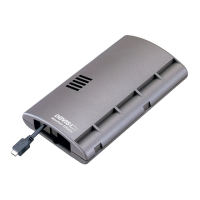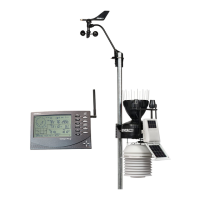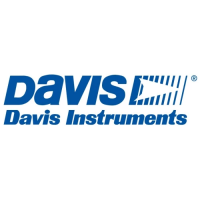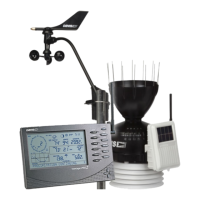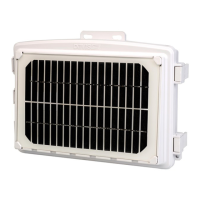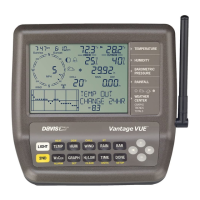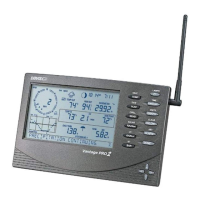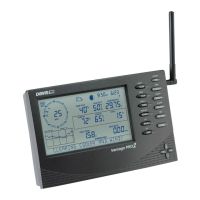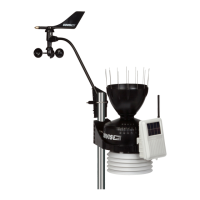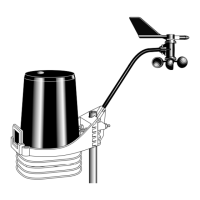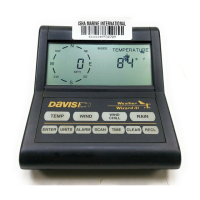Mount Your Weather Envoy
8
Mount Your Weather Envoy
You can place your Envoy on your desktop, install it on a wall near your com-
puter, or install it with the optional Multi-Purpose Shelter (7728). Here are
some guidelines for placing your Weather Envoy.
Envoy Location
You should place the Envoy in a location where it is easily accessible and can
be easily connected to a computer (or router if using WeatherLinkIP). For
more accurate readings, follow these suggestions:
• Avoid placing the Envoy in direct sunlight. This may cause erroneous
inside temperature and humidity readings and may damage the unit.
• Avoid placing the Envoy near radiators or heating/air conditioning ducts.
• If you are mounting the Envoy on a wall, choose an interior wall. Avoid
exterior walls that tend to heat up or cool down depending on the weather.
The range of the radio transmission that the Envoy can receive from the wire-
less ISS depends on several factors. Try to position the Envoy as close to the
transmitting weather station as possible for best results.
Typical maximum ranges are:
• Line of sight: 1000 feet (300 m).
• Under most conditions: 200 - 400 feet (60 - 120 m).
Other range and transmission considerations include:
• Range may be reduced by walls, ceilings, trees, foliage, a metal roof or
other large metal structures or objects such as aluminum siding, metal
ducts, and metal appliances, such as refrigerators.
• Frequency interferers also reduce transmission distance. Cordless phones
(900 Mhz) are a common example of frequency interference.
• Transmission between wireless units may be obscured by something
unidentifiable, or by some obstacle that can’t be worked around.
Note: For best results, orient the ISS antenna and the Envoy antenna so that the orienta-
tion and angles of the antennas are parallel to each other.
For better reception over greater distances or for weaker signals, consider
using a Wireless Repeater (#7626 or 7627) or Long-Range Repeaters (#7653
or 7654) to strengthen the signal or increase the distance between your ISS and
the Envoy.
Wall Mounting the Envoy
1. Use the provided wall mounting template on the next page as an example of
hole spacing and alignment when installing your Envoy.
2. Use the template as a guideline for the hole markings on the wall where you
want to mount the Envoy, and use a pencil to mark the location for the two
mounting screws.
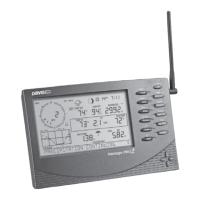
